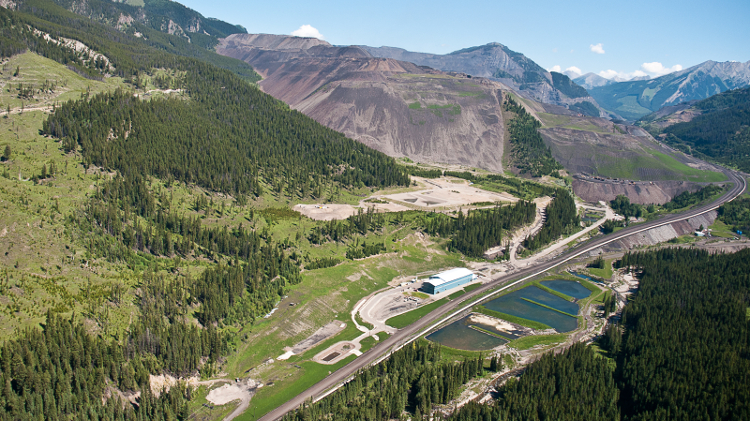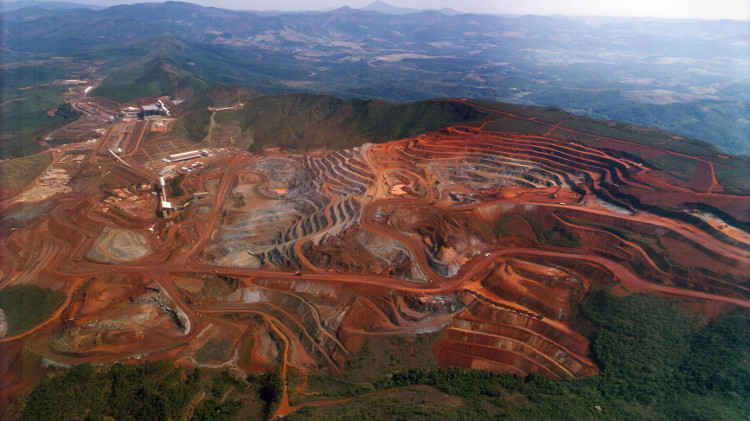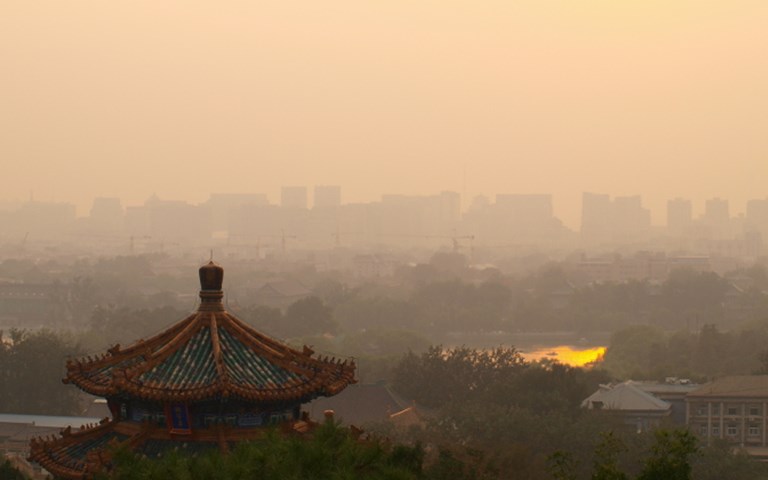A smoggy 2012 morning in Beijing, looking out from Coal Hill. China will revoke a third of its iron ore mining license to help reduce smog in the country. Michelle Cain (distributed via imaggeo.egu.eu)
China is revoking almost a third of its iron ore mining licences to help reduce smog in the country, Reuters reported Wednesday. The move comes just before the winter months, where smog increases throughout the country. The decision is also an attempt to curb the country’s steel production. Here is what you need to know about the announcement.
Who announced this?
Lei Pingxi, the Metallurgical Mines' Association of China’s chief engineer made the announcement at an industry conference, as reported by Reuters.
“Some small miners who didn’t pay attention to environmental issues simply closed down temporarily to cope with inspections,” Lei reportedly said. “However, these small miners will be forced to upgrade their production processes in order to survive, otherwise they will be cleared out.”
How many mines will be impacted?
More than 1,000 iron ore mining rights will be eliminated. Eric Hedborg, lead iron ore analyst at CRU Group, called this the second major wave of cutbacks to China’s iron ore industry in recent years. The first came in 2015 after iron ore prices fell below US$40.00 per tonne.
Small private mines have faced competition from cost-efficient, better quality iron ore imports, particularly from Australia. Reuters reported that Peter Poppinga, executive director of Vale, said at the conference the number of iron ore mines in China has dropped from more than 3,000 to about 1,900 in recent years.
Are the mines affected Chinese-owned or internationally-owned?
Tyler Broda of RBC Capital Markets said that “100 per cent” of the companies affected would be Chinese-owned. But they would be privately-owned as opposed to owned by the state.
“Fifty percent are controlled by state-owned enterprises and they will survive even if their iron ore cost is a little bit higher,” Hedborg added. “They want constant supply of a quality they’re familiar with.”
Hedborg estimated the mines in question only operate at about 20 to 30 per cent capacity.
“They’re not making a lot of money,” he said.
He also described the mines as “very inland, far from the coast and steel plants,” making it difficult for them to be economically viable.
How will this affect the Chinese market for iron ore?
According to PriceWaterhouseCoopers, China accounts for nearly 70 per cent of global iron ore demand, although Hedborg doesn’t expect a change in China’s production levels. This is due, he said, to how little many of the country's iron ore mines are currently producing.
But Broda said too much capital has been invested in the industrial side of the Chinese economy, including steel production which requires iron ore, and the government is starting to feel the pinch.
“A way of controlling excess debt levels is by reigning in supply,” he said.




